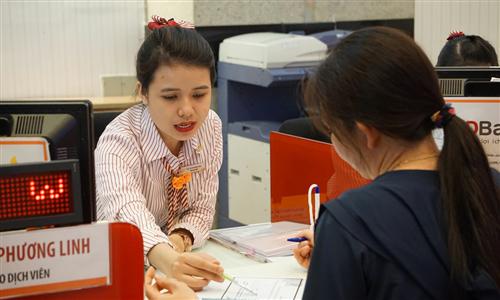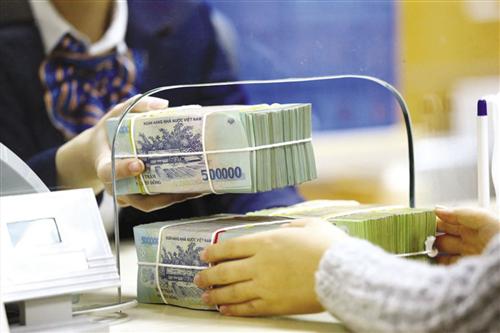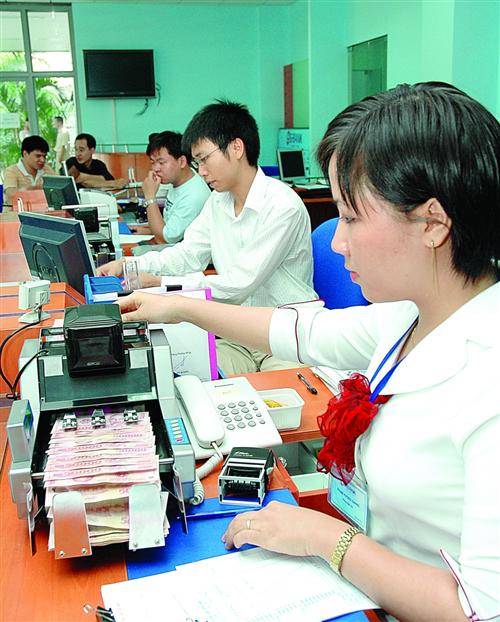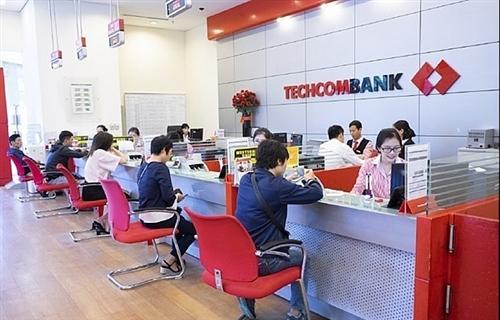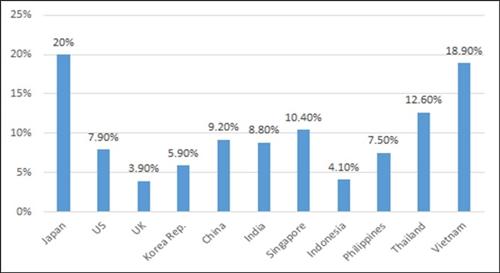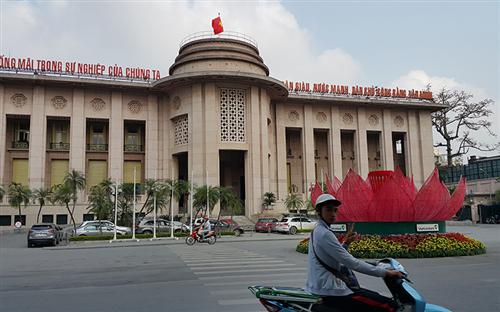Lenders shore up business activities
Lenders shore up business activities
Central banks have taken up new relief plans to mitigate a sharp contraction sparked by the coronavirus outbreak across the globe, including cutting costs, slashing rates, and delaying dividend payouts.
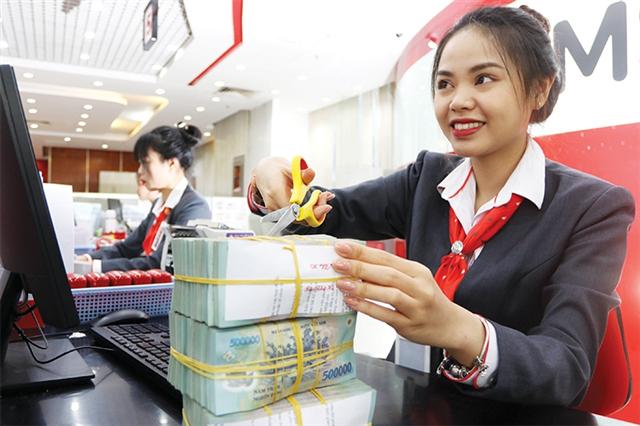
Preferential packages are being utilised while banks await clearer skies, Photo: Le Toan
|
Last week, the State Bank of Vietnam (SBV) asked commercial lenders to reduce minimum settlement fees of 50 per cent via the interbank electronic payment system, followed by Circular No.04/2020/TT-NHNN which took effect from April 1.
On the same day, regulators ordered curbs on dividends and operating expenses to ensure banks preserve capital to cope with severe financial stress, according to Directive No.02/CT-NHNN. The outbreak and subsequent sharp decline in business activity have, in fact, been factored into the SBV’s recent decisions.
Specifically, settlement fees accounted for 38 per cent of total fee income of the 18 listed banks in 2019 so the mandatory fee reduction compounds the decline in volumes driven by the weak near-term outlook for transaction banking.
Net fee income represented 10 per cent of total adjusted revenue of the listed banks in 2019. While not particularly large, it has been a key driver of return-on-equity enhancement. Hence, trimming operating costs and staff bonuses will partially offset the earnings impact of reduced fees and lending rates.
“Delaying cash dividend payment will strengthen capital level for the banking system, which is not well capitalised on the whole. Investors may not be happy with this decision, but we believe applying this policy broadly – rather than only to specific thinly capitalised banks – is necessary to shore up systemic solvency and confidence in the crisis environment,” noted Tanh Tran, analyst at Yuanta Securities.
The prospects for banks are obviously less attractive than thought for 2020, given reduced net interest margin, lower fee incomes, higher provisioning costs, and a deterioration in real (if not reported) asset quality, he added.
Other market watchers expected dividends and other shareholder payouts will be “socially unacceptable” until the full extent of the COVID-19 outbreak is known.
The realisation that global and domestic outlook will probably shrink for part of this year, and the looming risk of a financial panic and credit crunch has led central banks to slash interest rates at a pace last seen during the global financial crisis.
Across the ocean, European lenders are also shoring up capital by cancelling or delaying dividend payments amid concerns about their ability to absorb a potential rush of bad loans as households and companies are impacted by the coronavirus pandemic.
The coronavirus outbreak is the biggest test for bank stability since the financial crisis, while global central bank rate cuts will crimp profits on their bread-and-butter lending businesses.
On the other hand, commercial lenders have also trimmed their lending rates from 1 to 4.5 per cent after SBV Deputy Governor Dao Minh Tu asked 20 banks to mull over a minimum of 2-per-cent rates reduction which could blunt the economic fallout stemming from the outbreak as of April 1.
Accordingly, a handful of lenders have taken timely action to ease the pain of customers, such as Vietcombank, Nam A Bank, Agribank, BIDV, VPBank, TPBank, and HDBank.
VIB has slashed 0.5 to 2 per cent of lending rates within six months to make sure corporate financing is available, especially for small- and medium-sized enterprises, and mitigate investors’ aversion to risk-taking.
Kien Long Bank has rolled out a preferential loan package of rates 3 per cent lower than that of regulated specialised clients in the Mekong Delta – an effort to combat water shortages, saline intrusion, and climate change impacts.
Meanwhile, Agribank earmarked a package of VND100 trillion ($4.3 billion) at low lending rates for vulnerable businesses.
UK lender Standard Chartered Bank also dropped or exempted its lending rates, provision of credit facilities, in tandem with a moratorium on loan repayment to help concerning borrowers cope with financial hardship.
“We understand that individuals and businesses are facing unprecedented challenges. We hope that the relief measures will help our clients tide over this stressful period,” Nirukt Sapru, CEO Vietnam and ASEAN & South Asia Cluster Markets under Standard Chartered Bank emphasised.







